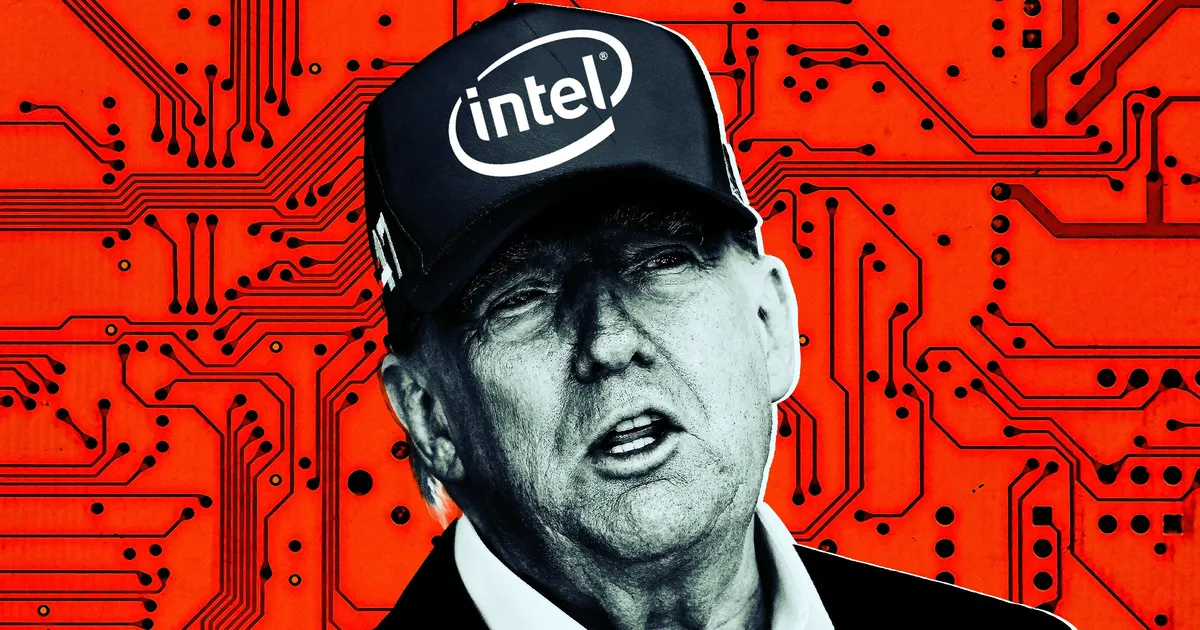
In today's chaotic political landscape, politicians often find themselves in unexpected alliances. A notable example of this is the recent decision by President Donald Trump to have the US government acquire a 10 percent stake in the struggling chipmaker Intel. This unusual move has drawn criticism from across the political spectrum, raising questions about its practicality and implications for the future of American industry.
On the surface, the decision seems to contradict traditional economic principles, where calls for nationalizing industry typically arise from the left, while the right generally champions market-based solutions. In a press release, Intel announced that the US government is purchasing $8.9 billion in company stock, a strategic effort to bolster American technology and manufacturing leadership. US Commerce Secretary Howard Lutnick emphasized the administration's commitment to enhancing the nation's dominance in artificial intelligence and reinforcing national security.
Despite the intention behind this investment, it is important to recognize that Intel is currently not a winning bet in the market. Once a dominant force in the semiconductor industry, Intel has struggled to keep pace with competitors like Nvidia, which has surged ahead by creating hardware optimized for machine learning algorithms. The decline in Intel's stock has been dramatic—dropping 60 percent in 2024 alone and falling below $20 by late December, a stark contrast to its peak of nearly $70 in 2021. Although Intel's stock price fluctuated following the announcement of the government investment, it ultimately fell by about one percentage point.
In stark contrast, Nvidia has experienced remarkable growth, seeing its stock price increase by over 1,000 percent during the same period that Intel has declined. This disparity highlights the challenges Intel faces as it attempts to regain its footing in a rapidly evolving tech landscape. Critics argue that Trump's investment in Intel, which some see as a form of nationalization, contradicts his longstanding opposition to socialist policies.
The investment has sparked significant backlash, even among fellow Republicans. Influential conservative talk radio host Eric Erickson publicly criticized the move, drawing parallels to socialist ideologies. In a video posted on X, he pointed out the hypocrisy of conservatives who oppose government intervention in the economy yet support Trump's actions. He remarked, "This is socialism with an R next to its name," questioning the implications of government ownership in private enterprises.
Others, like Senator Rand Paul, have expressed concerns about the potential for expanding government control over various industries. Paul warned that if conservatives endorse this investment, they may inadvertently provide a blueprint for future administrations to expand government ownership in the private sector, fundamentally altering the landscape of American capitalism.
Meanwhile, Senator Bernie Sanders, a self-identified democratic socialist, has taken a nuanced position. He praised the government's stake in Intel but criticized it for not demanding enough in return for taxpayer investments. Sanders stated, "Taxpayers should not be providing billions of dollars in corporate welfare to large, profitable corporations like Intel without getting anything in return." His comments underscore the need for accountability and benefit-sharing when the government invests taxpayer dollars in the private sector.
While Trump's administration remains hopeful about the potential for returns on this investment, the reality is that any gains Intel might achieve will likely be hard-fought. The American public may face a long wait—if not an indefinite one—for a tangible return on the nearly $9 billion investment. Undeterred, Trump has stated intentions to pursue more similar deals, indicating a willingness to continue this controversial approach to economic intervention.
As the political landscape evolves, the implications of this investment in Intel will undoubtedly continue to be a topic of heated debate. Whether this move represents a strategic pivot or a misguided gamble remains to be seen, but one thing is clear: the intersection of politics and economics has never been more complex.